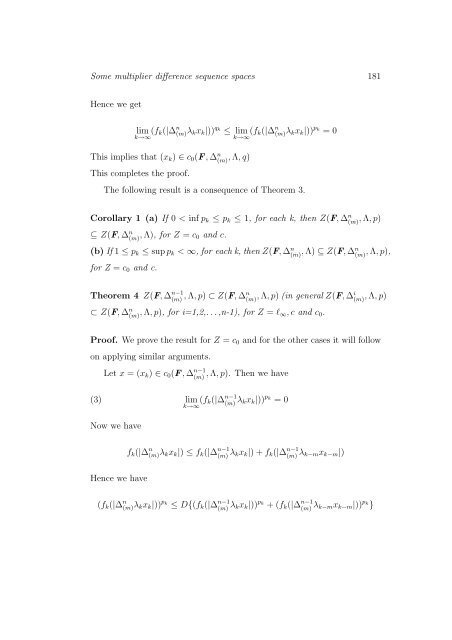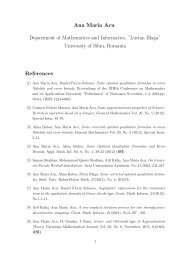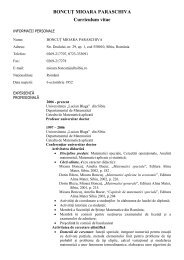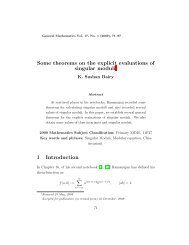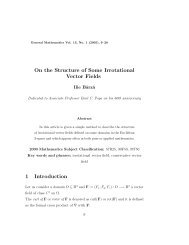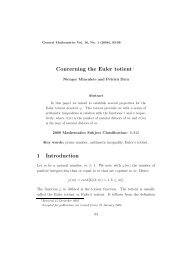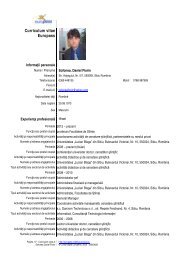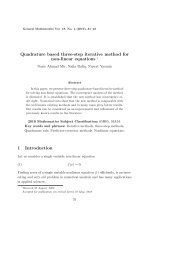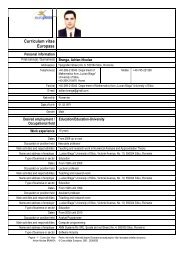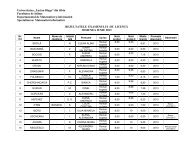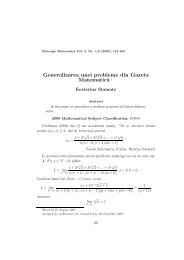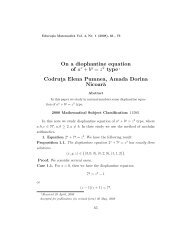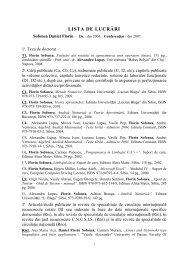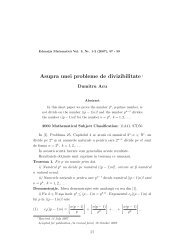Some multiplier difference sequence spaces defined by a sequence ...
Some multiplier difference sequence spaces defined by a sequence ...
Some multiplier difference sequence spaces defined by a sequence ...
You also want an ePaper? Increase the reach of your titles
YUMPU automatically turns print PDFs into web optimized ePapers that Google loves.
<strong>Some</strong> <strong>multiplier</strong> <strong>difference</strong> <strong>sequence</strong> <strong>spaces</strong> 181Hence we getlim (f k(|∆ n (m)λ k x k |)) q k≤ lim (f k (|∆ nk→∞ k→∞(m)λ k x k |)) p k= 0This implies that (x k ) ∈ c 0 (F , ∆ n (m), Λ, q)This completes the proof.The following result is a con<strong>sequence</strong> of Theorem 3.Corollary 1 (a) If 0 < inf p k ≤ p k ≤ 1, for each k, then Z(F, ∆ n (m), Λ, p)⊆ Z(F, ∆ n (m) , Λ), for Z = c 0 and c.(b) If 1 ≤ p k ≤ sup p k < ∞, for each k, then Z(F, ∆ n (m) , Λ) ⊆ Z(F, ∆n (m), Λ, p),for Z = c 0 and c.Theorem 4 Z(F, ∆ n−1(m) , Λ, p) ⊂ Z(F, ∆n (m) , Λ, p) (in general Z(F, ∆i (m), Λ, p)⊂ Z(F, ∆ n (m) , Λ, p), for i=1,2,. . . ,n-1), for Z = l ∞, c and c 0 .Proof. We prove the result for Z = c 0 and for the other cases it will followon applying similar arguments.Let x = (x k ) ∈ c 0 (F , ∆ n−1(m), Λ, p). Then we have(3) limk→∞(f k (|∆ n−1(m) λ kx k |)) p k= 0Now we haveHence we havef k (|∆ n (m)λ k x k |) ≤ f k (|∆ n−1(m) λ kx k |) + f k (|∆ n−1(m) λ k−mx k−m |)(f k (|∆ n (m)λ k x k |)) p k≤ D{(f k (|∆ n−1(m) λ kx k |)) p k+ (f k (|∆ n−1(m) λ k−mx k−m |)) p k}


